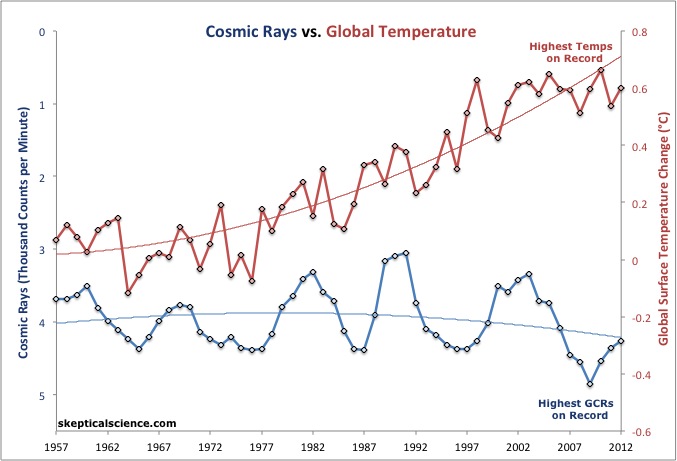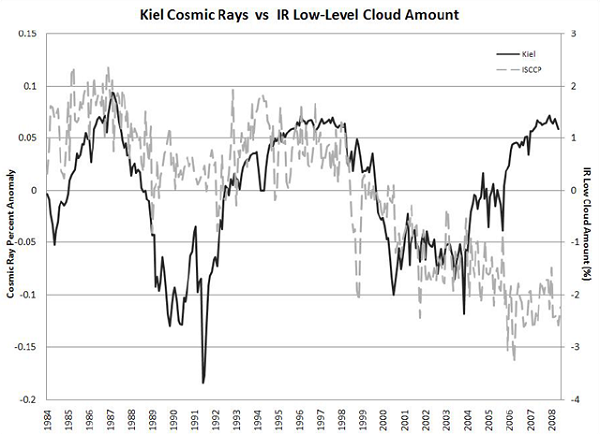It looks like you're using an Ad Blocker.
Please white-list or disable AboveTopSecret.com in your ad-blocking tool.
Thank you.
Some features of ATS will be disabled while you continue to use an ad-blocker.
share:
a reply to: johnwick
Well, I don't hate Jewish people or men so... yeah you are wrong. Neither of which have anything to do with either topics we've replied to each other in. So take your own advice, stfu and stick to the topic.
One of the phases of extinction between the Permian and Triassic eras was caused by runaway warming. But your argument isn't really grounded to begin with. It's the dramatic global temperature changes, whether to cold or to hot, triggered by some kind of cataclysm that caused a great deal of extinctions in Earth's past epochs.
Well, I don't hate Jewish people or men so... yeah you are wrong. Neither of which have anything to do with either topics we've replied to each other in. So take your own advice, stfu and stick to the topic.
One of the phases of extinction between the Permian and Triassic eras was caused by runaway warming. But your argument isn't really grounded to begin with. It's the dramatic global temperature changes, whether to cold or to hot, triggered by some kind of cataclysm that caused a great deal of extinctions in Earth's past epochs.
originally posted by: Phage
a reply to: johnwick
Never once in Terra's( that is earth's name BTW) history has co2 at much higher concentrations than now wrecked the ecosystem.
Really? Everything changed quite dramatically when plants evolved that could turn that CO2 into oxygen. It really did sort of wreck things for the life that was around before that. But it turned out to be good for us.
But once again, that really doesn't have anything to do with what rising CO2 levels and their associated effects will have, and are having on us. Here. Now. And for the next couple of hundred years.
You are obviously right here!!
We cannot dispute the past it is as it was.
I don't see the need for the hyperbole here though.
It isn't even on par with past co2 levels.
Are you worried we will excede them?
What without any bs is your position?
I agree environmentalism is a good position.
I agree we should not be doing most of the ecological travesties that are ongoing.
But does the wanted AGW bs substantiate this?
Are you just playing the lesser of greater evils here?
If so I can understand.
a reply to: johnwick
Clear enough for you?
No. But then, the Sun is emitting more radiation now than it was then, when CO2 levels were higher than they are now.
It isn't even on par with past co2 levels.
Are you worried we will excede them?
Really? I've been too subtle for you? I think that the burning of fossil fuels has increased atmospheric CO2 levels which has increased radiative forcing which has, and will continue to increase temperatures. I think that the detrimental effects of this will be widespread. I think that my daughter's world will be far less pleasant than mine has been. I think that we have the potential, if not the will, to mitigate those effects. Both by planning for them and by slowing the rate of change by reducing the production of CO2.
What without any bs is your position?
Clear enough for you?
Evil has nothing to do with it. It's about science.
Are you just playing the lesser of greater evils here?
edit on 5/17/2015 by Phage because: (no reason given)
originally posted by: Phage
a reply to: Xtrozero
So...we can hope that Yosemite erupts and continue to dump CO2 into the atmosphere? What about oceanic acidification? Doesn't matter?
1. A large volcano eruption or two can reset it all.
Different subject all together, just saying that volcanoes are basically the main force that cools the earth. Little ice age from 1350 to about 1850 was due to three very big volcano eruptions within a solar minimum. The 1600s to 1700s were brutally cold centuries, summer many time didn't come, the Hudson and the Thames river would freeze over allowing people to use them as ice bridges etc...
Now if Yosemite erupts then we have end game...
2. Large amount of ice build up on the south pole is not a good sign.
I meant the large buildup of sea ice, south pole was generalization, maybe not a good one... lol
edit on 17-5-2015 by Xtrozero because: (no reason given)
a reply to: Xtrozero
Reduced insolation has a greater and longer term effect.
In a very transitory sense yes. The cooling from Pinatubo lasted a few years.
Different subject all together, just saying that volcanoes are basically the main force that cools the earth. L
Reduced insolation has a greater and longer term effect.
a reply to: Phage
Not quite true Phage....
"In 2009, cosmic ray intensities have increased 19 percent beyond anything we've seen in the past 50 years," said Richard Mewaldt of Caltech.
Link
"
Also....
"Observations made by NASA instruments onboard an Air Force satellite have shown that the boundary between the Earth’s upper atmosphere and space has moved to extraordinarily low altitudes
Link
"
Another interesting recent discovery is that the decay of some radioactive materials on earth is affected by sunspot activity which might impact the eaarths temperature core which in turn is impacting earths magnetic field.
link
I am guessing that the oceans have buffered a climate change for the last 10-15 years, its going to get drastically colder in coming years.
Winters coming.
Not quite true Phage....
"In 2009, cosmic ray intensities have increased 19 percent beyond anything we've seen in the past 50 years," said Richard Mewaldt of Caltech.
Link
"
Also....
"Observations made by NASA instruments onboard an Air Force satellite have shown that the boundary between the Earth’s upper atmosphere and space has moved to extraordinarily low altitudes
Link
"
Another interesting recent discovery is that the decay of some radioactive materials on earth is affected by sunspot activity which might impact the eaarths temperature core which in turn is impacting earths magnetic field.
link
I am guessing that the oceans have buffered a climate change for the last 10-15 years, its going to get drastically colder in coming years.
Winters coming.
a reply to: glend

Or is it that increase in cloud cover that suddenly caused the oceans to retain heat?

I guess a bit of cooling would be welcome, but I don't think counting on it is a good idea. Not based on the data.
Quite true. On the average cosmic ray intensity has not changed much. Unless you are saying that the 11 year solar cycle is what's causing warming. Are you?
Not quite true Phage....
Interesting. I'm not sure what the claims about solar effects on radioactive decay have to do with climate (your link doesn't say anything about that) but you think the oceans suddenly decided to hang onto heat for some reason? Climatologist tend to agree (thus a "pause" in atmospheric warming) but the way it works isn't exactly clear. I mean, isolation hasn't changed much (except for a very slight decline) and cosmic ray activity has been showing a bit of a long term decline (with the exception of the solar minimum of 2008-2009). Not much overall since 1957 at least. But temperatures have been rising since then. That's a pretty interesting buffering effect. How does it work? What do you suppose has been preventing that heat from escaping to space for all that time?
I am guessing that the oceans have buffered a climate change for the last 10-15 years, its going to get drastically colder in coming years.

Or is it that increase in cloud cover that suddenly caused the oceans to retain heat?

I guess a bit of cooling would be welcome, but I don't think counting on it is a good idea. Not based on the data.
edit on 5/18/2015 by Phage because: (no reason given)
a reply to: glend
That's actually another tell-tale sign of greenhouse gas warming... troposphere warming while stratosphere cooling. If the extra heat were coming from above the stratosphere would be warming first instead it's contracting from cooling.
"Observations made by NASA instruments onboard an Air Force satellite have shown that the boundary between the Earth’s upper atmosphere and space has moved to extraordinarily low altitudes
That's actually another tell-tale sign of greenhouse gas warming... troposphere warming while stratosphere cooling. If the extra heat were coming from above the stratosphere would be warming first instead it's contracting from cooling.
new topics
-
Maestro Benedetto
Literature: 5 minutes ago -
Is AI Better Than the Hollywood Elite?
Movies: 14 minutes ago -
Las Vegas UFO Spotting Teen Traumatized by Demon Creature in Backyard
Aliens and UFOs: 3 hours ago -
2024 Pigeon Forge Rod Run - On the Strip (Video made for you)
Automotive Discussion: 4 hours ago -
Gaza Terrorists Attack US Humanitarian Pier During Construction
Middle East Issues: 4 hours ago -
The functionality of boldening and italics is clunky and no post char limit warning?
ATS Freshman's Forum: 6 hours ago -
Meadows, Giuliani Among 11 Indicted in Arizona in Latest 2020 Election Subversion Case
Mainstream News: 6 hours ago -
Massachusetts Drag Queen Leads Young Kids in Free Palestine Chant
Social Issues and Civil Unrest: 6 hours ago -
Weinstein's conviction overturned
Mainstream News: 8 hours ago -
Supreme Court Oral Arguments 4.25.2024 - Are PRESIDENTS IMMUNE From Later Being Prosecuted.
Above Politics: 9 hours ago
top topics
-
Krystalnacht on today's most elite Universities?
Social Issues and Civil Unrest: 9 hours ago, 9 flags -
Supreme Court Oral Arguments 4.25.2024 - Are PRESIDENTS IMMUNE From Later Being Prosecuted.
Above Politics: 9 hours ago, 8 flags -
Weinstein's conviction overturned
Mainstream News: 8 hours ago, 7 flags -
University of Texas Instantly Shuts Down Anti Israel Protests
Education and Media: 12 hours ago, 6 flags -
Massachusetts Drag Queen Leads Young Kids in Free Palestine Chant
Social Issues and Civil Unrest: 6 hours ago, 6 flags -
Gaza Terrorists Attack US Humanitarian Pier During Construction
Middle East Issues: 4 hours ago, 6 flags -
Meadows, Giuliani Among 11 Indicted in Arizona in Latest 2020 Election Subversion Case
Mainstream News: 6 hours ago, 5 flags -
Las Vegas UFO Spotting Teen Traumatized by Demon Creature in Backyard
Aliens and UFOs: 3 hours ago, 3 flags -
2024 Pigeon Forge Rod Run - On the Strip (Video made for you)
Automotive Discussion: 4 hours ago, 2 flags -
Any one suspicious of fever promotions events, major investor Goldman Sachs card only.
The Gray Area: 14 hours ago, 2 flags
active topics
-
British TV Presenter Refuses To Use Guest's Preferred Pronouns
Education and Media • 164 • : Annee -
VP's Secret Service agent brawls with other agents at Andrews
Mainstream News • 56 • : CarlLaFong -
University of Texas Instantly Shuts Down Anti Israel Protests
Education and Media • 209 • : cherokeetroy -
Maestro Benedetto
Literature • 0 • : BrotherKinsMan -
Massachusetts Drag Queen Leads Young Kids in Free Palestine Chant
Social Issues and Civil Unrest • 11 • : marg6043 -
Electrical tricks for saving money
Education and Media • 7 • : chr0naut -
Definitive 9.11 Pentagon EVIDENCE.
9/11 Conspiracies • 424 • : Zanti Misfit -
Is AI Better Than the Hollywood Elite?
Movies • 0 • : 5thHead -
Las Vegas UFO Spotting Teen Traumatized by Demon Creature in Backyard
Aliens and UFOs • 8 • : Macenroe82 -
SHORT STORY WRITERS CONTEST -- April 2024 -- TIME -- TIME2024
Short Stories • 23 • : DontTreadOnMe
